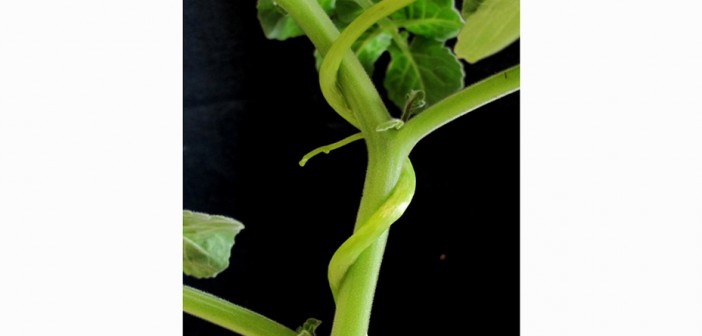Tomato plants deter attacks from a parasitic plant that’s known to ravage crops by detecting one of its peptides, a new study has revealed.
Worldwide, parasitic plants cost billions of dollars in crop losses, but a better understanding of how some plants fend off invaders could help efforts to mitigate these losses. Cuscuta reflexa is a parasitic, leafless vine that infects the stems of most dicotyledonous plants. One notable exception is Solanum lycopersicum, a species of tomato.
Plants are sometimes able to detect disease-causing microbes by the distinct peptides that these invading plants release, which prompts the host plant to secrete the stress-related hormone ethylene. The research team lead by Volker Hegenauer suspected that S. lycopersicum may take a similar strategy when facing the plant parasite C. reflexa, which they confirmed. By analyzing natural variation the researchers identified the receptor behind this sensitivity, which they named Cuscuta receptor 1 (CuRe1).
When the team induced expression of the corresponding gene in the leaves of two other plant species (one closely related to S. lycopersicum and the other more distantly related), both plants reacted to presence of the C. reflexa peptide with increased production of ethylene, and exhibited increased resistance to C. reflexa infestation.

Photo Caption: Flower of the dicotyledonous plant parasite Cuscuta reflexa.
Photo Credit: Dr. Eric Melzer
The post Tomatoes resist a parasitic vine by detecting its peptide appeared first on Hort News.